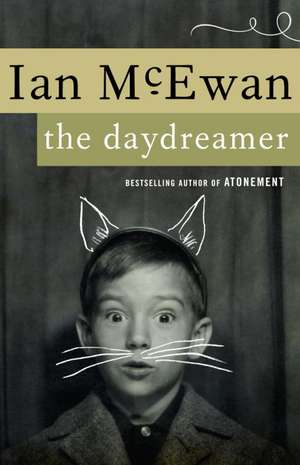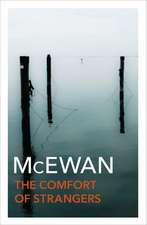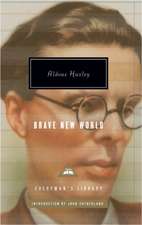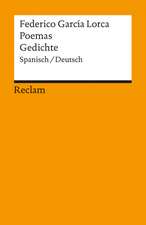The Daydreamer
Autor Ian McEwanen Limba Engleză Paperback – 31 dec 1999 – vârsta de la 8 până la 11 ani
First published in England as a children's book, The Daydreamer marks a delightful foray by one of our greatest novelists into a new fictional domain. In these seven exquisitely interlinked episodes, the grown-up protagonist Peter Fortune reveals the secret journeys, metamorphoses, and adventures of his childhood. Living somewhere between dream and reality, Peter experiences fantastical transformations: he swaps bodies with the wise old family cat; exchanges existences with a cranky infant; encounters a very bad doll who has come to life and is out for revenge; and rummages through a kitchen drawer filled with useless objects to discover some not-so-useless cream that actually makes people vanish. Finally, he wakes up as an eleven-year-old inside a grown-up body and embarks on the truly fantastic adventure of falling in love. Moving, dreamlike, and extraordinary, The Daydreamer marks yet another imaginative departure for Ian McEwan, and one that adds new breadth to his body of work.
| Toate formatele și edițiile | Preț | Express |
|---|---|---|
| Paperback (3) | 38.09 lei 17-23 zile | +3.54 lei 7-13 zile |
| Reclam Philipp Jun. – oct 2004 | 38.09 lei 17-23 zile | +3.54 lei 7-13 zile |
| Penguin Random House Children's UK – 7 sep 1995 | 40.91 lei 26-32 zile | +12.57 lei 7-13 zile |
| Vintage Publishing – 6 sep 1995 | 51.39 lei 26-32 zile | +16.12 lei 7-13 zile |
Preț: 78.39 lei
Nou
Puncte Express: 118
Preț estimativ în valută:
15.01€ • 15.47$ • 12.60£
15.01€ • 15.47$ • 12.60£
Carte indisponibilă temporar
Doresc să fiu notificat când acest titlu va fi disponibil:
Se trimite...
Preluare comenzi: 021 569.72.76
Specificații
ISBN-13: 9780385498050
ISBN-10: 0385498055
Pagini: 160
Dimensiuni: 131 x 203 x 11 mm
Greutate: 0.17 kg
Ediția:Anchor Books.
Editura: Anchor Books
ISBN-10: 0385498055
Pagini: 160
Dimensiuni: 131 x 203 x 11 mm
Greutate: 0.17 kg
Ediția:Anchor Books.
Editura: Anchor Books
Notă biografică
Ian McEwan is the bestselling author of more than ten books, including the novels The Comfort of Strangers and Black Dogs, both shortlisted for the Booker Prize, Amsterdam, winner of the Booker Prize, and The Child in Time, winner of the Whitbread Award, as well as the story collections First Love, Last Rites, winner of the Somerset Maugham Award, and In Between the Sheets. He has also written screenplays, plays, television scripts, a children’s book, and the libretto for an oratorio. He lives in London.
Extras
As each chapter of The Daydreamer was completed, I read it aloud to my children. The arrangement was simple. They got the latest installment of what we called the 'Peter stories', and I took away some useful editorial content. This pleasant, almost ritualistic exchange in turn affected the writing itself, in that I became more than usually attentive to the sound of an adult voice speaking each sentence. This adult was not, or not simply, me. Alone in my study, I read aloud passages to an imaginary child (not quite, or not only, one of mine) on behalf of this imaginary adult. Ear and tongue, I wanted to please them both.
The child's needs I thought I knew instinctively: a good tale above all, a sympathetic hero, villains yes, but not all the time because they are too simplifying, clarity in openings, twists in the middle, and satisfying outcomes that were not always happy. For the adult I felt little more than vague sympathy. We all love the idea of bedtime stories -- the fresh minted breath, the wide and trustful eyes, the hot water bottle baking down among the clean linen, the sleepy glowing covenant -- and who would not have the scene carved upon his headstone? But do adults really like children's literature? I've always thought the entusiasm was a little overstated, even desperate. 'Swallows and Amazons? Beatrix Potter? Marvellous books!' Do we really mean it, do we really still enjoy them, or are we speaking up for, and keeping the lines open to, our lost, nearly forgotten selves? When exactly did you last curl up alone with The Swiss Family Robinson?
What we like about children's books is our children's pleasure in them, and this is less to do with literature and more to do with love. Early on in writing and reading aloud The Daydreamer I began to think it might be better to forget about our mighty tradition of children's literature and to write a book for adults about a child in a language that children could understand. In the century of Hemingway and Calvino simple prose need not deter the sophisticated reader. I hoped the subject matter -- the imagination itself -- was one in which anyone who picks up a book has a stake. Similarly, transformation has been a theme, almost an obsession, in all literatures. The Daydreamer was published in an illustrated edition for children in Britain and the United States, and in a more sober adult form in various other countries. There was once a tradition by which authors dedicate their books to the fates, rather in the manner of a parent sending a child out into the world. 'Goe littel booke...' this one may well settle down after all for a quiet life in a corner of a children's library, or die in oblivion, but for the moment I'm still hoping it might give some pleasure all round.
Ian McEwan
1995
The child's needs I thought I knew instinctively: a good tale above all, a sympathetic hero, villains yes, but not all the time because they are too simplifying, clarity in openings, twists in the middle, and satisfying outcomes that were not always happy. For the adult I felt little more than vague sympathy. We all love the idea of bedtime stories -- the fresh minted breath, the wide and trustful eyes, the hot water bottle baking down among the clean linen, the sleepy glowing covenant -- and who would not have the scene carved upon his headstone? But do adults really like children's literature? I've always thought the entusiasm was a little overstated, even desperate. 'Swallows and Amazons? Beatrix Potter? Marvellous books!' Do we really mean it, do we really still enjoy them, or are we speaking up for, and keeping the lines open to, our lost, nearly forgotten selves? When exactly did you last curl up alone with The Swiss Family Robinson?
What we like about children's books is our children's pleasure in them, and this is less to do with literature and more to do with love. Early on in writing and reading aloud The Daydreamer I began to think it might be better to forget about our mighty tradition of children's literature and to write a book for adults about a child in a language that children could understand. In the century of Hemingway and Calvino simple prose need not deter the sophisticated reader. I hoped the subject matter -- the imagination itself -- was one in which anyone who picks up a book has a stake. Similarly, transformation has been a theme, almost an obsession, in all literatures. The Daydreamer was published in an illustrated edition for children in Britain and the United States, and in a more sober adult form in various other countries. There was once a tradition by which authors dedicate their books to the fates, rather in the manner of a parent sending a child out into the world. 'Goe littel booke...' this one may well settle down after all for a quiet life in a corner of a children's library, or die in oblivion, but for the moment I'm still hoping it might give some pleasure all round.
Ian McEwan
1995
Recenzii
"A shivery, prickly joy". --The Globe and Mail
"A classic." --The Financial Post
"Mr. McEwan at his best." --The New York Times Book Review
"A classic." --The Financial Post
"Mr. McEwan at his best." --The New York Times Book Review
Textul de pe ultima copertă
From award-winning master Ian McEwan comes an enchanting work of fiction that appeals equally to adults and children. In these seven exquisite, interlinked episodes, grownup Peter Fortune reveals the secret journeys, metamorphoses, and adventures of his childhood.
Living somewhere between dream and reality, Peter experiences fantastical transformations: he swaps bodies with the family cat and a cranky infant, battles a very bad doll who comes to life to seek revenge, and discovers in a kitchen drawer some vanishing cream that actually makes people vanish. In the final story, he wakes up as an eleven-year-old inside a grownup's body, and embarks on the truly fantastic adventure of falling in love. Moving, dreamlike, and extraordinary, The Daydreamer is a celebration of imagination and fantasy.
Descriere
In these seven exquisitely interlinked stories, the grown-up protagonist Peter Fortune reveals the secret journeys, metamorphoses, and adventures of his childhood.







